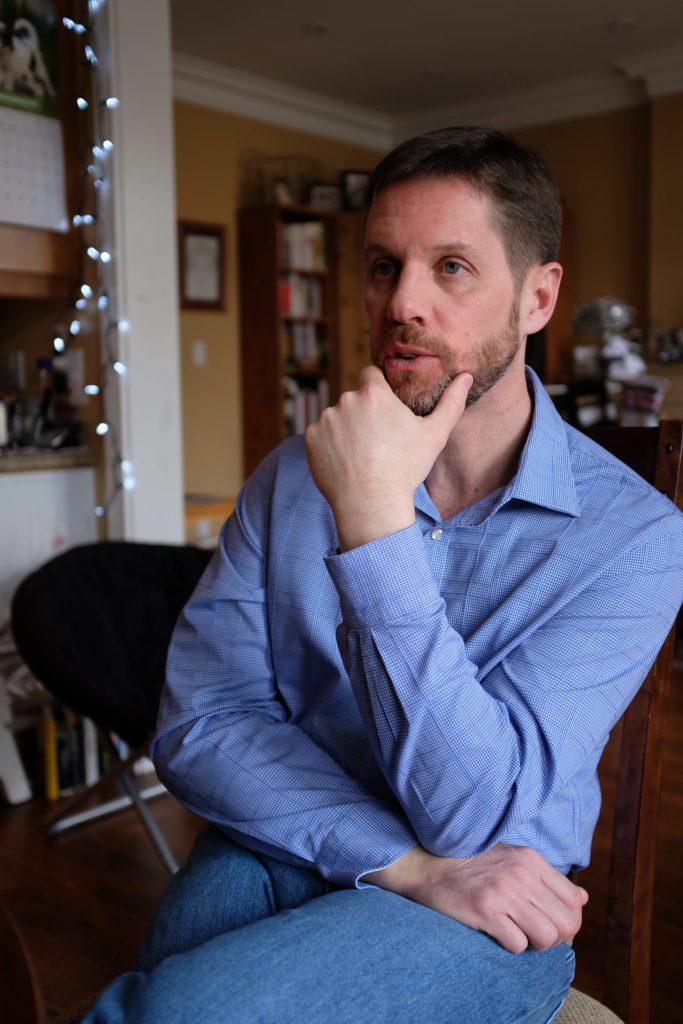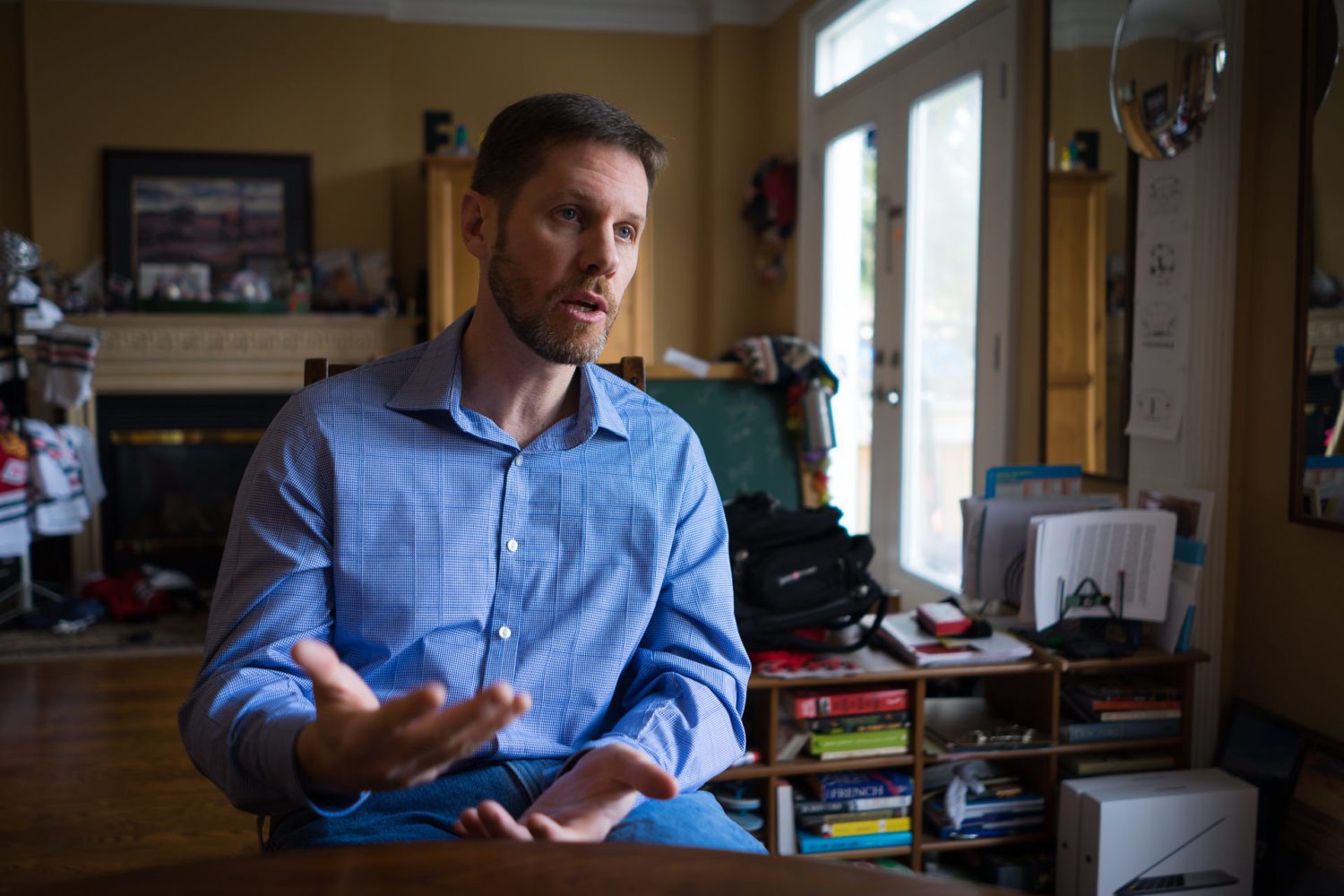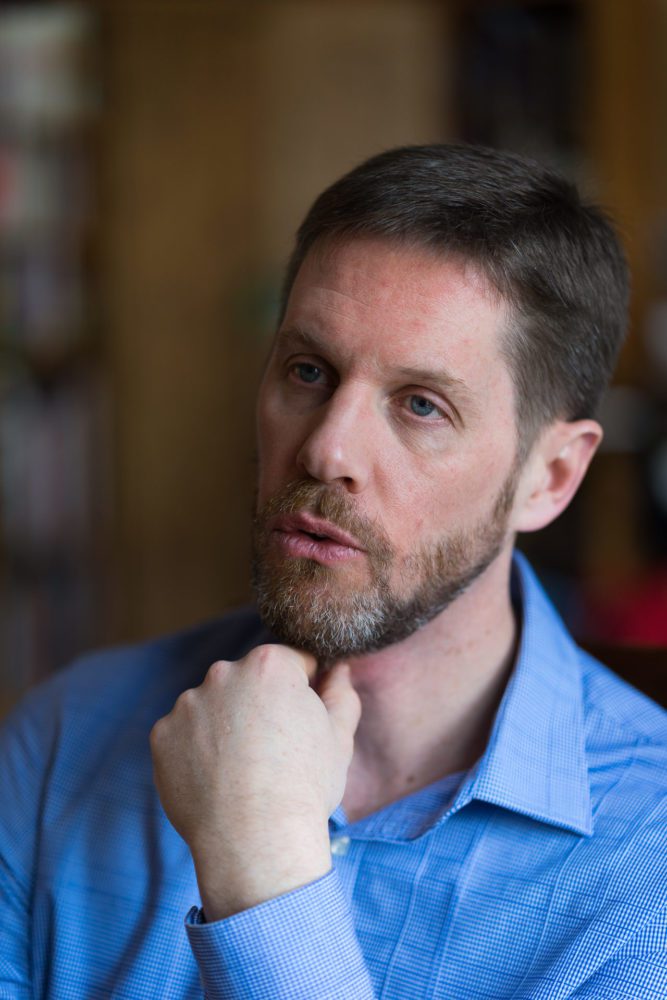In Part 1 of this series, Rob described treating patients in West Africa during an Ebola outbreak. Here, he talks about how that experience has affected him and his research.
“When we moved back to Canada, I was still working for the World Health Organization. I was taking calls from people in a treatment unit in Sierra Leone who had daily issues that they needed some help with. I was also still one of the people responsible for facilitating evacuations from West Africa for health workers or people from the WHO who had been potentially exposed to the virus. The outbreak was still quite active, and I would work with the country where that person was going to go, to help make the arrangements.”
“I had also started back on the roster at our ICU. At times I thought I couldn’t do both jobs, but there was just so much that needed to be done. I struggled with wanting to continue to do something in West Africa because I felt morally obligated to do so and was so engaged in it, while at the same time needing to fulfill my responsibility to the ICU here.”
“It was a challenge being back working in a resource-flush environment. The first week we had a busy night or two. Six people were intubated in the emergency room and there was the usual, ‘The walls are crumbling in! We’re overwhelmed!’ I have to admit thinking that although it wasn’t ideal to have patients in the emergency room, there were really good nurses and I was able to work fine in that environment. It probably took six months before I was back to being sensitive to the way we usually approach challenges here.”

“The other thing that I found really, really difficult was that my tolerance for what I might view as BS was no longer very high. I am usually pretty non-confrontational almost to a fault, but in Africa if we didn’t do what needed to be done that day and a patient didn’t get good care, then they were going to die. So we got things done. Here, I sometimes became frustrated with the bureaucracy or with someone saying we had to do something in a certain way just because those were the rules.”
Afterwards I realized what a big challenge it was to integrate back into working in Canada. Many NGOs and most military Operations give people who have been overseas a certain time to decompress before they start back on their normal job. I didn’t do that, which was not smart.

Has your experience in West Africa changed you fundamentally?
“I think it has. It’s changed how I spend my time and the sorts of problems and research that I want to get involved in. For example, the use of corticosteroids for really sick people in the ICU. Dozens of studies have been done on that topic and we still can’t agree whether or not there’s a benefit. That suggests that the benefit, if it exists, must be pretty small. That’s a research question that before I might have thought was intellectually kind of interesting and maybe clinically relevant. But now I would say, ‘Who cares? If the effect is that small, maybe we should study something else.’”
Are you willing to say that to your colleagues?
“No! [laughs]. Because I respect that other people think it is important and scientifically interesting.”

How did you become interested in global health in the first place?
“When I was a medical trainee, I always had a sense that if I had the ability and time, I would like to do something outside of Canada. I did medical student rotations in the north and thought, ‘Holy crap, this is so different in terms of people’s access to care and their socioeconomic situation. And there’s a lot of room for improvement here!’ That’s within our own country.”
“The SARS and H1N1 outbreaks that we experienced in Toronto led me to become more engaged with public health and the WHO.”
After a while I kind of asked, ‘Of all of the things that I can engage in on a given day, where can I actually have the most impact?’
“It really does matter if you are a good doctor, but some of the things we focus on in health care and research in Canada may have a limited impact.”
“On the other hand, during the H1N1 outbreak, colleagues in Mexico City asked if I could help with what they were experiencing. They were overwhelmed at the beginning — they had people on ventilators everywhere in the hospital and their mortality rate was around 40 to 50 percent, while ours was around 15 to 20 percent. This made me realize that helping people provide high quality critical care in countries not as well-resourced as ours can be helpful in a very meaningful way.”
You work in palliative care as well. Why did you decide to pursue that?
“As an ICU physician, I see a lot of interventions at the end of life that seem to be just part of being on the train of healthcare, with little thought that it might be better to get off the train. Sometimes when you come in as an outsider and look over the person’s trajectory, you think, ‘What’s going on here? This person is dying and aggressive treatment isn’t going to be helpful and will probably be harmful.’”
“For someone who is dying, I think what matters is that you give good humanistic care, you control their symptoms as best you can, and you try to prevent people spending their last weeks and months on a ventilator and unable to communicate. A huge gap and failing of our system is that it is really focused on acute care. It’s often a narrow, deep health care system, where we are totally set up to ventilate more patients, but if we want to send someone home with home care or hospice care, our system is not set up to do that in the volume and quality necessary.”
“There’s been a big shift among ICU physicians to recognize that end-of-life care is an important part of our job. We’ve got people doing combined fellowships in palliative care and critical care. Twenty or 30 years ago, if someone said they were going to do palliative care as part of an ICU fellowship, people would have thought they were confused. Now, people view critical care and palliative care as pretty closely linked.”


The comments section is closed.